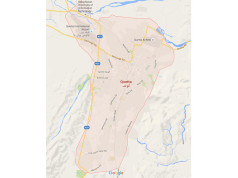Internet service providers (ISPs) grant customers the ability to access the Internet. Without them and their servers, the Internet becomes an unreachable goal for many people. That said, ISPs aren’t perfect and are often on the receiving end of criticism.
Perhaps the biggest reason ISPs experience so much criticism is because of a lack of user privacy. See, ISPs grant customers internet access by routing a user’s data through their own servers. This means that ISPs have access to the information you’re sending. But what information do they collect?
What Do They Know?
ISPs know almost everything about their customers—that’s a fact. Because they route all user data through their servers, they can see everything, from the IP address of a phone to the email someone sent to their family. They see it all.
Depending on the level of encryption, ISPs can even see the websites someone visits! Even their browsing history! Suffice it to say, Internet users are monitored 24/7, if not by criminals, then by their ISP.
This constant monitoring and tracking of data makes one wonder why. Why do ISPs, which are often large corporations or government subsidiaries, need to collect information on their customers?
Why Do ISPs Track User’s Data?
1) Profit
There are a couple of reasons why ISPs collect user data, the major driving force being profit. In an age where nearly five billion people use the Internet, user data has become akin to gold.
Companies value user data because it helps them learn what products people want to see/are searching for. Governments need a hold on user data to know what citizens are currently talking about and what the people want. But ISPs? They see pure profit in data.
ISPs can, and do, sell user data off to these corporations and governments. In some countries, the selling and trading of data require permission from users, but not every country does. Recent years have even seen ISPs gain more power in fields where they once had none, such as when the United States Senate removed the need for ISPs to obtain consent to sell user’s data.
2) Censorship
Profit drives independent ISPs—ISPs separate from the government—but what about ISPs that work closely with governments? In these cases, ISPs are focused more on retaining power than making a profit.
Take, for example, the three major ISPs in China. The three ISPs are China Mobile, Telecom, and Unicom, and each of them are state-owned, i.e., function as part of the government.
Censorship runs rampant in China, and the Internet is no different. Many major sites are banned in China, and only government-approved news sites and social media apps are allowed. How is this possible? Because the three ISPs collect data and work with the government to help keep the Internet censored.
3) Bandwidth Throttling
Not all reasons for data collection are as nefarious, however. Many ISPs collect data because they have thousands to millions of users and a limited amount of servers to accommodate everyone.
In cases an ISP deems necessary, they may limit the amount of bandwidth users have access to in order to grant sufficient bandwidth to other customers. This taking away of bandwidth, a practice known as bandwidth throttling, hurts the Internet speeds of the people affected.
User data can be used to determine who may be taking up large amounts of bandwidth and who may not need as much bandwidth as they’re using. This happens fairly often, and most ISPs perform bandwidth throttling to the annoyance of customers everywhere.
How Do You Maintain Privacy?
No matter the reason ISPs breach user privacy and collect data, one thing is clear: this lack of respect for user data is unacceptable. And while there’s no escaping needing an ISP to use the Internet, there are ways to mitigate the data they can collect.
1) Make Tor Your Main Browser
Google Chrome may be the most popular browser out there, but it is certainly not the most secure. And while browsers like Firefox and Opera promise better privacy, they aren’t as secure as the Tor browser.
Tor routes all user activity through servers located around the world and anonymizes the data sent through. The downside to Tor is it can be slow due to the way Tor’s node system functions and how bandwidth is shared across users. But there is another solution for anonymizing data.
2) Anonymize Your Data With a VPN
Virtual Private Networks (VPNs) route users’ data through private VPN servers, anonymizing each piece of data in the process. Unlike Tor, VPNs don’t handicap Internet speeds and, in some cases, can help.
A VPN download for all devices can save someone a lot of time and frustration with their ISP while also making sure their data remains safe and anonymous.
3) Use HTTPS Everywhere
Many major websites nowadays use HTTPS, a secure, encrypted version of the HTTP protocol that prevents third-parties from collecting and viewing your data. But while HTTPS has become the standard for modern websites, many have failed to catch up.
If a website you frequent isn’t using HTTPS, there are browser extensions out there you can use to force HTTPS anywhere you go.
Share your comments!









